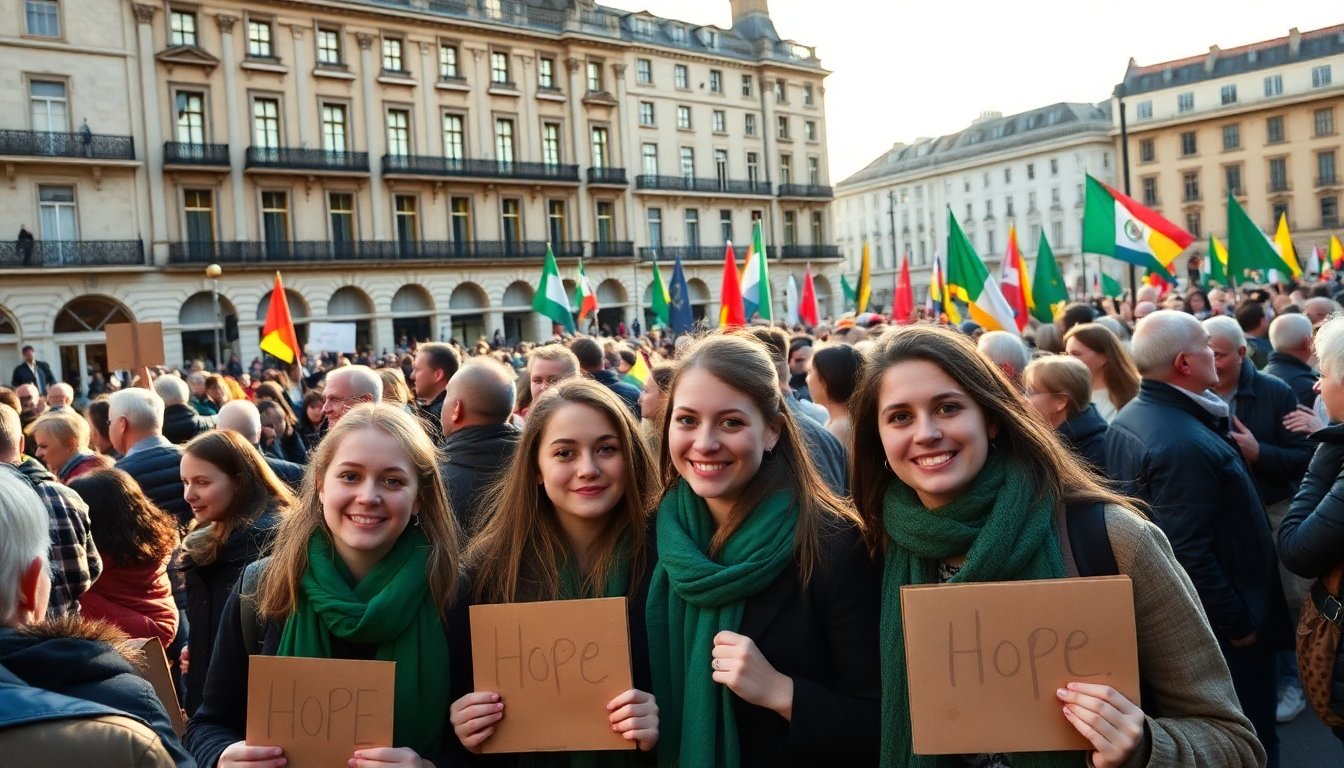Table of Contents
The recent presidential election in Ireland has ushered in a new era with the election of Catherine Connolly, an independent candidate who has championed the cause of economic justice. Connolly, who received significant backing from left-leaning parties, including Sinn Féin, has made headlines not just for her policies but also for the context of her victory amid a backdrop of political discontent.
Her campaign resonated with many voters, particularly younger constituents who are increasingly frustrated with the status quo. Connolly’s firm stance on issues such as the ongoing conflict in Gaza and domestic reforms reflects a broader shift in Irish political sentiment, as citizens demand accountability and progressive change.
The election results and their implications
In a decisive outcome, Connolly secured approximately 64% of the votes, significantly outpacing her nearest rival, Heather Humphreys of Fine Gael, who garnered about 29%. The remaining candidates, including Jim Gavin from Fianna Fáil, who withdrew from the race, collectively accounted for a mere 7% of the votes. Despite her clear victory, the election was marred by a historically high rate of spoiled ballots, reaching 13%, signaling a growing disenchantment among the electorate towards traditional political structures.
Voter discontent and spoiled ballots
The decision to spoil ballots was driven by grassroots movements, notably led by businessman Declan Ganley, who accused the political establishment of marginalizing certain candidates, such as conservative Maria Steen from the Iona Institute. Under the current system, candidates must navigate stringent nomination processes, which critics argue stifle genuine competition and public choice, as seen in Steen’s failure to meet the required endorsements.
Voters expressed their frustrations through poignant messages on spoiled ballots, with one voter highlighting a demand for the repeal of controversial laws and a call for greater national sovereignty. Such sentiments underscore a significant portion of the population’s disillusionment with the existing political framework and their desire for a more representative democratic process.
Catherine Connolly’s political stance
Connolly’s political journey is characterized by her outspoken views on various contentious issues. As a self-identified socialist, she has criticized both the European Union’s military spending plans and the United States’ foreign policy, particularly regarding Israel’s actions in Gaza. Her comments likening Germany’s increased defense budget to the militarization of the 1930s have sparked controversy and raised concerns about her approach to international relations.
Impact on international relations
With her presidency set to last at least seven years, Connolly’s views may create friction between Ireland and international allies, particularly the Trump administration in the United States. Her support for controversial groups such as Hamas, especially in the context of the Palestinian state, raises eyebrows among more conservative factions within Ireland and abroad.
Additionally, Connolly’s open borders philosophy has come under scrutiny, particularly following a tragic incident involving an asylum seeker. Critics argue that her policies may not align with the concerns of many citizens who prioritize national security and social stability. This disconnect could lead to challenges for her presidency as she navigates the complexities of governance in a divided society.
Despite these controversies, Connolly’s presidency promises to be a platform for addressing pressing social issues, including the ongoing housing crisis, which she has vehemently criticized. Her appointment signifies a call for urgent reforms that resonate with a populace eager for change.
As she prepares to assume her role, the world will be watching closely to see how Catherine Connolly balances her progressive agenda with the realities of leading a nation grappling with deep-seated political and social issues.


